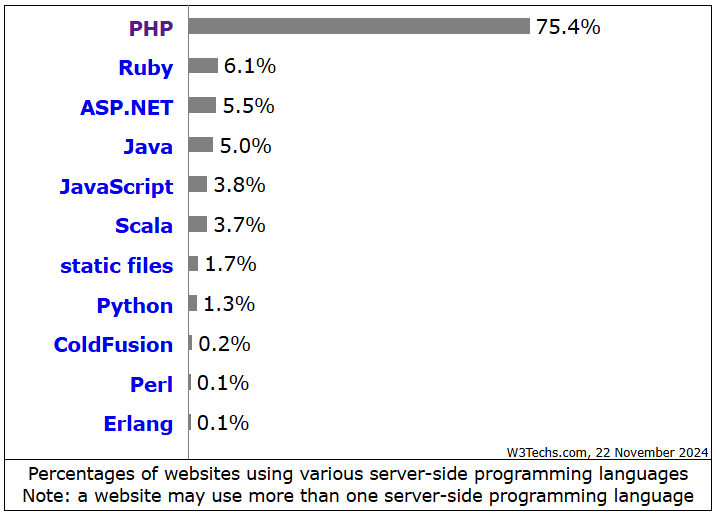
If you are considering taking your business online, selecting the right CMS is crucial for its success. Among the various options available, Umbraco is a top choice for developing enterprise-level websites.
Umbraco offers unique functionalities compared to other CMS platforms like WordPress and Joomla. So, choosing a content management system that fits your requirements can be daunting. Let’s dive deep into the comparison of Umbraco, Joomla, and WordPress to help you make an informed decision for your business.
The Basics
Umbraco
Launched in 2000, Umbraco is among the top CMS platforms for website development. This widely used C# platform is built on Microsoft-based infrastructure.
Being a completely configurable and adaptable content management system that serves as a blank canvas for developers to work with, Umbraco for enterprise websites has established a niche for itself.
WordPress
Before becoming one of the most widely used content management systems on the internet, WordPress began as a community-based blogging platform in 2003. It gained popularity right away because its development aimed to empower the average user by making websites accessible and user-friendly for all.
From its modest origins, WordPress has grown to become the most popular content management system globally, utilized by both large and small companies.
Joomla
Released in 2005, Joomla is a powerful player among open-source CMS platforms. This PHP-powered system, built on a structured MVC framework, combines robust content management capabilities with extensive customization options.
The Main Differences Between Umbraco and WordPress
The fundamental differences lie in their technical architecture and target audience:
In general, Umbraco vs. WordPress and Joomla users fall into slightly distinct primary demographics. While web developers make up nearly all of the Umbraco user population, bloggers and marketers seeking a flexible content management system make up a large portion of the WordPress and Joomla user community.
Because each platform has different purposes, there are disparities in demography. While Umbraco requires extensive technical and web development expertise to utilize fully, WordPress and Joomla have made an effort to be accessible to anyone.
Hiring a third-party web developer or specialist is required for nearly everything users wish to perform on Umbraco, although it is required for certain tasks with WordPress.
.NET and PHP Framework
This can be the greatest way to differentiate Umbraco vs. other solutions if you have a desire for a particular kind of codebase and development framework.
ASP.NET is an open-source server-side web application platform that powers Umbraco. This framework is home to a specific group of experts who have probably been using the codebase since they first learned to code, making Umbraco a CMS platform for developers.
In contrast, WordPress and Joomla make use of PHP, a completely different framework. It is a fully open-source framework and a general-purpose scripting language that is particularly well-suited for web development. WordPress was first created in 1994 by a man named Rasmus Lerdorf while Joomla was created much later in 2005. Currently, over 75.4% of all websites use the PHP framework, with WordPress and Joomla being two of the most popular CMS platforms built using this language.

Target Audience
Umbraco vs. Joomla and WordPress are advanced CMS systems that cater to different audiences.
Here is a detailed list of the audiences these platforms serve:
Umbraco Target Audience:
- Large enterprise companies needing complex websites
- Government and educational institutions
- Corporate IT teams with .NET knowledge
- Businesses needing custom, unique solutions
- Organizations handling sensitive data and security needs
- Companies running multiple large websites
- Teams needing detailed workflow control
- Businesses with complex integration needs
- Organizations with big content teams
- Companies with technical development teams
WordPress Target Audience:
- Small business owners
- Bloggers and content creators
- Online store owners
- Freelancers and professionals
- Local businesses
- Non-profit organizations
- Restaurants and small shops
- Personal portfolio sites
- Digital magazines and news sites
- Small marketing teams
- Startups and entrepreneurs
- DIY website builders
- Creative professionals
- Small to medium online stores
- Community organizations
Joomla Target Audience
- Small to Medium-sized Businesses
- Non-Profit Organizations
- Web Developers and Designers
- Educational institutions
Learning Curve
WordPress is renowned for its user-friendly interface and accessibility for beginners, while Joomla sits in the middle ground, offering more technical depth than WordPress but remaining approachable for those with basic web skills. Umbraco often appeals to developers and users who are comfortable with technical customization. Both platforms come with learning curves, but their complexity and adaptability can vary depending on your goals and experience.
Understanding these nuances can help you choose the right CMS for your project:
Umbraco Learning Curve:
- Requires solid understanding of .NET programming
- Takes time to learn the backend structure
- Need coding skills to make custom changes
- Understanding of C# programming is essential
Developers need knowledge of:
- MVC architecture
- Database management
- API integration
- Visual Studio
- Source control (like Git)
Admin users need to learn:
- Content tree structure
- Property editors
- Template management
- Document types
WordPress Learning Curve:
- Can start using it within hours
- No coding knowledge needed for basics
- Simple, familiar interface like Word
Easy to learn common tasks:
- Writing posts
- Adding images
- Installing plugins
- Changing themes
- Managing comments
- Creating pages
- Visual editor makes content creation simple
- Lots of video tutorials available
- Large community for help
- Can learn advanced features gradually
- User-friendly dashboard
- Built-in help features
- Quick start guides available
- Can master basics in few days
Joomla Learning Curve
- Basic dashboard navigation
- Article creation and management
- Simple menu creation
- User management basics
- Installing templates
- Module management
- Template customization
- Extension installation
- Category organization
- Basic troubleshooting
- Custom development
- Security management
- Performance optimization
- Template development
- Database management
Tips to Speed Learning
- Start with local development
- Use sample data for practice
- Follow official documentation
- Join community forums
- Take structured online courses
Ease of Use
The main goal of this article is to assist you in selecting the best CMS for business websites, so let’s examine how user-friendly the platforms are in comparison.
All three platforms provide superb content management capabilities with minimal ongoing technical expertise needed to develop the material, and the final product is ideal for content editors.
WordPress and Joomla have both developed into fantastic tools that can assist you in creating pages and content that are logical and organic, giving the marketing manager, copywriter, or owner of a website the ability to manage material.
On the other hand, when a lot of time and dedication is put into Umbraco, it truly shines. Right out of the box, Umbraco makes it clear that their target audience is professional developers and not the typical CMS users. Hence, it purposefully leaves out many of the essential features that are required of a CMS.
SEO Friendliness
These platforms offer strong SEO capabilities, but their approaches differ:
Umbraco SEO:
- Clean URL structure
- Custom metadata control
- Better performance optimization
- Advanced routing options
WordPress SEO:
- Popular plugins like Yoast
- User-friendly SEO tools
- Extensive documentation
- Better for content-focused SEO
Joomla SEO:
- SEF (Search Engine Friendly) URLs
- Custom meta descriptions and titles
- Clean HTML markup
- Schema markup tools
- Analytics integration options
Features, Pros, and Cons
Looking to compare Joomla, WordPress, and Umbraco’s key capabilities? Here’s a concise breakdown of the defining features, advantages, and limitations of Umbraco vs. other CMS platforms that can help you make an informed choice for your next web project.
What’s better, Umbraco, WordPress, or Joomla?
The “better” platform depends entirely on your specific needs. The benefits of Umbraco CMS excel in enterprise environments where custom development and scalability are priorities. WordPress and Joomla are ideal for smaller businesses and content-focused websites requiring quick deployment and simple management.
Which platform is right for you?
Choose Umbraco if you:
- Need enterprise-level features
- Have technical expertise or resources
- Require extensive customization
- Prioritize security and scalability
- Plan to build complex applications
Choose WordPress if you:
- Need a quick, simple solution
- Have limited technical resources
- Focus primarily on content
- Want lower initial costs
- Prefer user-friendly interfaces
Choose Joomla if you:
- Need Balanced Flexibility & Usability
- Have Technical Resources
- Require Specific Features
- Build Specific Site Types
- Regular platform updates
Final Thoughts
When choosing the best CMS for business websites, consider custom CMS development services. These platforms offer unique advantages. While WordPress provides a faster time to market and easier management, Joomla positions itself as a more robust alternative, offering similar functionality to WordPress but with enhanced security and content organization features.
Umbraco for enterprise websites, on the other hand, requires you to hire Umbraco-certified developers to offer superior flexibility and scalability for long-term growth. When selecting between these open-source CMS platforms, consider your technical resources, budget, and long-term business objectives.
Remember that success with either platform often depends on working with experienced developers. Whether you hire CMS developers for WordPress, Joomla, or Umbraco, professional expertise can significantly impact you impact your project’s success.
Read More – 10 Reasons to Choose Angular Framework for App Development

